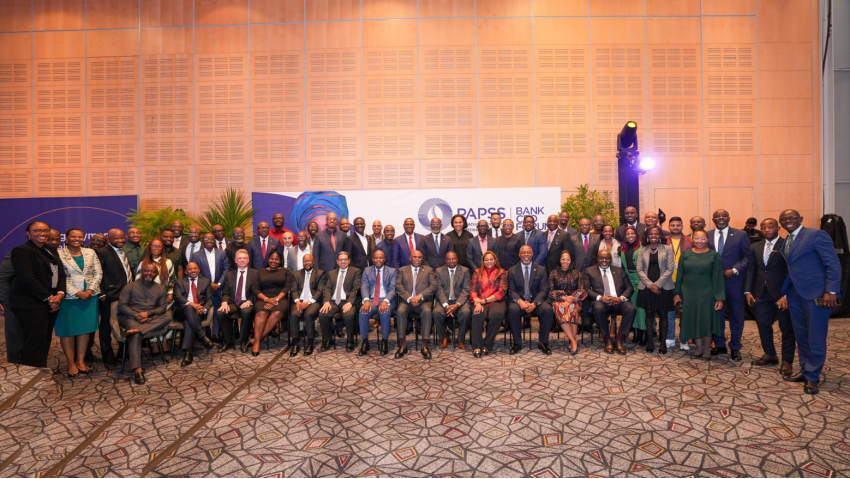
Promoters of the Pan African Payment and Settlement System (PAPSS) last week hosted heads of the continent’s commercial banks, switches and stock exchanges as they push for the use of the cross border local currency payment and settlement platform.
The use of PAPSS is being driven by Afreximbank, African Union Commission and the AfCFTA Secretariat.
The trio organised the first consultative forum of CEOs of African commercial banks, bankers’ associations, payment switches, the association of African stock exchanges and other financial service providers.
Participants reaffirmed their strong support to the decisions of the Assembly of the African Union Heads of States and Governments of 2019 and 2020, according to a statement released Monday.
The forum therefore provided an avenue for participants to deliberate on the successes and challenges of the PAPSS payment system and explore potential paths forward on how it can be optimised to facilitate seamless and efficient cross-border payments to support the implementation of the African Continental Free Trade Area (AfCFTA), it said.
“Following productive discussions, participants at the Forum agreed to take collective ownership of the success and the future of PAPSS given its significant and hugely positive impact on the facilitation of cross-border payments and the development of intra-African trade,” the statement said.
“In addition, participants advocated to leverage PAPSS as a pathway to increasing the share of African currencies in intra-African trade and other cross-border payments, as well as increasing the volume of intra-regional payments for mutual benefits to drive rapid adoption of PAPSS by businesses. Participants agreed to embed PAPSS into their digital channels to enable ease of access and seamless integration for existing customers.”
Saturday’s meeting in South Africa comes as PAPSS has been making tremendous progress, signing on 13 African central banks and connecting over 115 commercial banks and 10 payment switches across Africa, according to its CEO Mike Ogbalu.
- African countries to push common energy position at COP27
- Renewed push to boost adoption of Africa's local currency payment system
- Zim to benefit from IOM US$5,2m diaspora fund
- MIAF and AU Commission seal historic partnership
Keep Reading
“Another 115 commercial banks are in the pipeline for connection. Our foundation is solid, and the time has come for action and acceleration. It is time to use the system to drive trade in Africa, for Africans, by Africans. We urge all banks to join us in our collective effort to promote intra-African trade and development through PAPSS,” he said.
Ogbalu thanked the CEOs for supporting PAPSS which is a “revolutionary initiative that has the potential to significantly transform the financial and payments landscape of our continent”.
“As managers of PAPSS, we are committed to ensuring it succeeds. We urge all African financial institutions to join us in transforming the way payments are done in Africa,” he said.
It is projected the implementation of PAPSS will save Africa US$5 billion annually in transactional costs.
PAPSS is expected to integrate the disparate payment systems across the 55 countries on the continent, improve payment flows and reduce transaction costs would become central to the growth of intra-African trade.
There are 42 national currencies on the continent and access to hard currencies required to transact across borders is limited and intra-regional payments take 2 to 14 days to complete.
Under the PAPSS, payment will be completed within two minutes.
PAPSS is a centralised financial market infrastructure that enables the efficient flow of money securely across African borders, minimising risk and contributing to financial integration across the regions.











